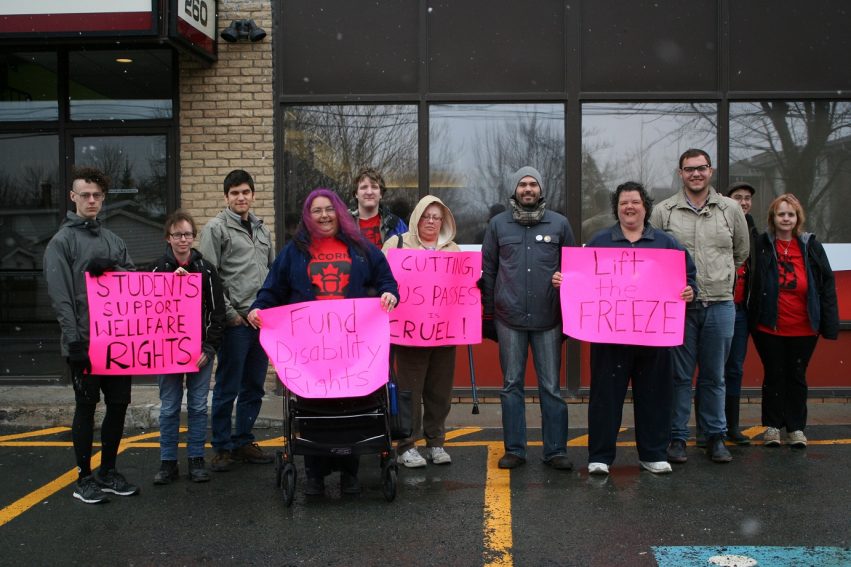KJIPUKTUK (Halifax) – A group that advocates for people on welfare is very worried about the way Income Assistance and Employment Support (ESIA) programs are being transformed by the Department of Community Services.

Community Services initiated the transformation in 2015 because it wants to change how social services are designed, delivered, and managed within the province. Tenders for external consultants to assist with these changes are worth $1.5 million, the CBC reported at that time.
In November several members of the Benefits Reform Action Group (BRAG) attended sessions in Halifax and Dartmouth meant to update stakeholders. These sessions are not to be confused with the updates provided to welfare recipients earlier this year.
At the meetings members of the group heard that the overall income assistance budget will not increase, meaning that people on welfare will continue to fight a losing battle to make ends meet.
“It is our understanding that no new funding will be made available to increase the basic, shelter or special needs allowances received monthly by ESIA recipients,” BRAG writes. “This decision fails to address the important fact that current ESIA rates are completely insufficient. We believe that no Departmental transformation will be successful unless this very basic fact is addressed.”
Earlier Community minister Joanne Bernard appeared to suggest that such improvements would be part of the transformation.
“We are working on benefit reform to make sure we look at the longer term. We know that incremental changes, $2 here and $5 there, does not make a substantial difference in the lives of people,” Bernard said in July 2015 in response to complaints about insufficient allowances.
BRAG members are also worried about DCS’ strong emphasis on getting people off the welfare rolls, something they say became apparent during the information sessions.
“We are also troubled that the proposed streamlining and rationalization efforts are structured around a model that segments ESIA recipients according to their distance from the labour market, e.g. their ability to be employed,” the letter states.
“This lens is too narrow and regressive which will lead to success being measured solely on the basis of people finding employment. We propose that the Department consider a model that is primarily based on the individual needs of recipients, e.g. their physical environment, educational needs, health requirements as they move toward independence and health,” BRAG members wrote.
That’s a mouthful, but what it really means is that BRAG wants DCS to address the many and varied immediate needs of the people in their care.
And it’s an urgent matter. Keep in mind that kids go to bed hungry in Nova Scotia.
Click here to read the BRAG letter to Nova Scotia MLAs.
Disclosure: The author at times does volunteer work for BRAG
In the unlikely event that you have a bit of money just sitting around, please support the Nova Scotia Advocate so that it can continue to cover issues such as poverty, racism, exclusion, workers’ rights and the environment in Nova Scotia.



